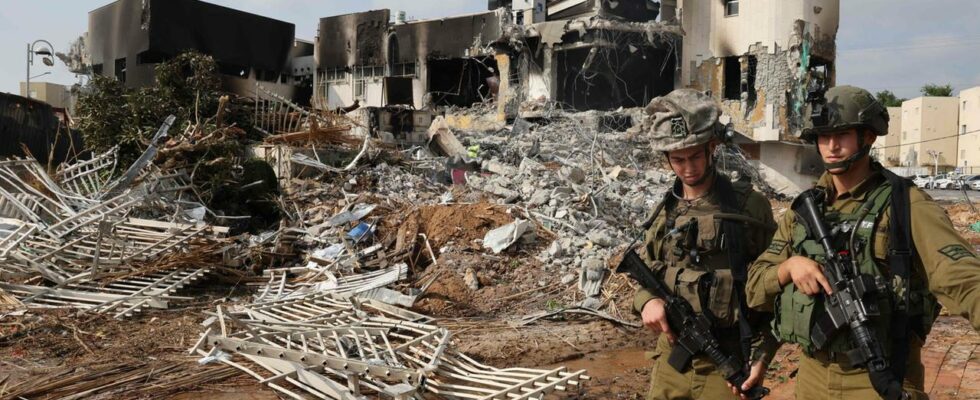According to media reports, Israeli forces documented terror preparations in the Gaza Strip almost three weeks before the Hamas attack. Their report apparently went unnoticed.
On October 7, when the Gaza Strip launched a terrorist attack on Israel, there were reportedly only twelve tanks and 600 soldiers on the Israeli side – defending a 65-kilometer-long border.
And there is now more and more information that the security forces could have been warned in advance. For example, through the observations of female soldiers who had noticed suspicious behavior in the Gaza Strip before October 7. Their warnings were ignored.
Document describes Hamas preparations
Now Israeli media are reporting on a document that was drawn up on September 19, almost three weeks before the terrorist attack, by the so-called Gaza Division of the Israeli Defense Forces. It mentions preparations for a large-scale invasion of Israel as well as plans to take 200 to 250 hostages. The report also describes in detail the training for this in the Gaza Strip. But the document apparently only circulated in the Gaza Division and never reached higher ranks or the political level.
The commander of the Gaza Division, Avi Rosenfeld, announced his resignation just over a week ago, saying that he had “failed on October 7 in the task of his life to protect the Gaza border area.”
Problems in evaluating information
Ronen Cohen, who worked as a director in military intelligence, told Israeli radio station 103fm that the document should not be overestimated. It could be viewed as another source of information.
But why were the recorded observations ignored? According to Cohen, this is also due to the way in which information is disseminated in Israeli security circles: “For many years, the secret service has not immediately created an investigation document from individual pieces of information, but rather passed on this information as it is if it is of importance. That is why it is then presented to the commander straight away, which can of course extend to the political level.”
In recent years, however, the urgency of information dissemination has changed in the army, says Cohen. “Information used to be distributed with urgency, and today the information is in a so-called pool and everyone evaluates the relevant information for themselves. This means that information often does not reach the political level.”
Observations were discussed hours before the attack
During the night, just a few hours before the terrorist attack began, Chief of Staff Halevi, among others, had met with leading intelligence officials for 90 minutes to discuss irregularities in Gaza. The meeting was adjourned and more information was requested.
In the early hours of the morning, hundreds of rockets were fired from the Gaza Strip into Israel, around 3,000 terrorists crossed the border, killed almost 1,200 people and took around 250 hostages.
Several investigations are already underway in Israel into possible security failures before October 7. Israel’s army announced an internal investigation in February, but no results have been published yet.
Question of political responsibility remains open
Matanyahu Engelsman, the so-called State Comptroller who monitors government actions in Israel, had already announced his own investigation in December. In February he said he was aware that the army was engaged in combat and that it needed to be supported. However, the State Comptrollers could not stop their work for a year. State control is one of the strengths of the State of Israel.
But Israel’s Supreme Court ordered the investigation to be stopped – on the grounds, among other things, that it would tie up too many resources in the army and the secret services at this time.
The question of the Israeli side’s failures remains open – as does the question of the political responsibility of Benjamin Netanyahu’s government. He continues to refuse to accept political responsibility. Critics accuse him of having neglected Israel’s security before October 7, along with his right-wing extremist and ultra-religious coalition partners.
Jan-Christoph Kitzler, ARD Tel Aviv, tagesschau, 18.06.2024 17:35

